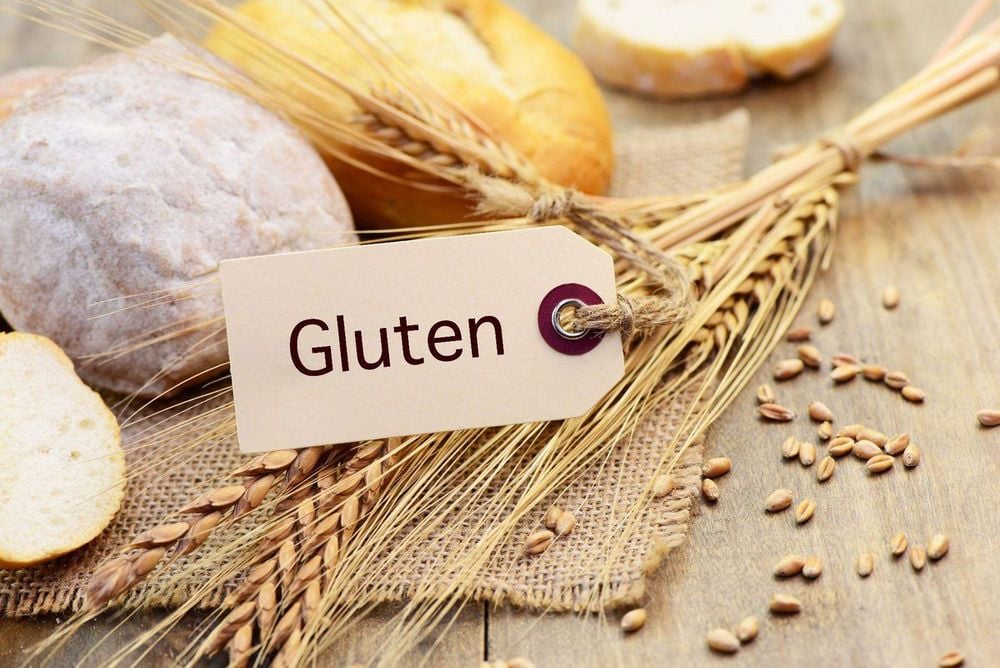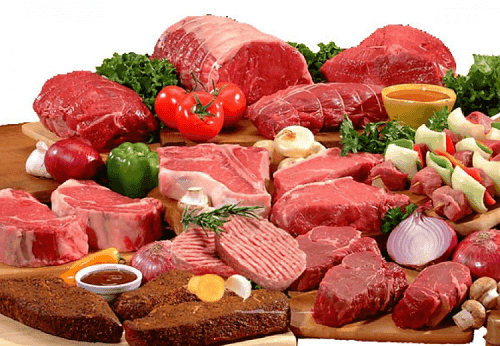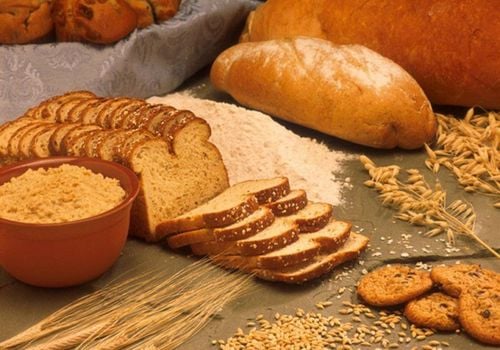This is an automatically translated article.
Constipation is a common problem in adults (about 27%) especially among those who are elderly and physically inactive. Symptoms of constipation can be bloating and gas. Including foods in your diet can help improve constipation, but there are some other foods that make constipation worse.
1. Alcohol
Alcohol is often mentioned as one of the causes of constipation. That's because drinking alcohol in large amounts can increase the amount of fluid lost in the urine and cause dehydration. Poor hydration, due to insufficient body water or excessive loss of water in the urine, is often associated with an increased risk of constipation.
However, no studies have yet been able to find a direct link between alcohol consumption and constipation. Furthermore, some people are reported to experience diarrhea instead of constipation after a night of drinking. This may be because the effects with alcohol are different from person to person.
People looking to counteract the potential dehydration and constipation effects of alcohol should try to offset each serving of alcohol with a glass of water or another non-alcoholic beverage.

Lạm dụng rượu khiến cơ thể bị mất nước qua đường tiểu
2. Foods containing gluten
Gluten is a protein found in grains such as wheat, barley, rye, spelt, kamut, and triticale. Some people may become constipated when they eat foods that contain gluten.Also, some people have a gluten intolerance called celiac disease. When a person with celiac disease consumes gluten, their immune system attacks the intestinal tract, causing serious intestinal damage. For this reason, people with this condition need to strictly follow a completely gluten-free diet.
In most countries, an estimated 0.5 - 1% of people have celiac disease, but many people are not well-informed and poorly informed about this disease. Therefore, avoiding foods containing gluten can help people with celiac disease reduce and heal intestinal wounds.
Gluten sensitivity but not celiac disease, but irritable bowel syndrome. These are two different cases in which the gut can react to wheat. Individuals with no medical conditions are gluten intolerant but are sensitive to wheat and other grains.
If you suspect that gluten is causing your symptoms of constipation, you should discuss this with your doctor so that celiac disease can be diagnosed and ruled out before you cut gluten out of your daily diet. This is important, because gluten needs to be in your diet every day so you can check how celiac disease is working. If you've ruled out celiac disease, you can try different levels of gluten to gauge how it reacts to your body.

Sử dụng các thực phẩm có chứa gluten có thể làm tăng nguy cơ bị táo bón
3. Processed cereals
Processed grains and their products, such as white bread, white rice, and white pasta, generally have less fiber and can be more constipating than whole grains. That's because the bran and germ of the grain are removed during processing. More specifically, bran contains a lot of fiber as well as additional nutrients in large amounts that can help stools move easily.
Many studies have found an association between high fiber intake and a lower risk of constipation. In fact, recent studies have reported a 1.8% lower chance of constipation for every additional gram of fiber consumed per day. Therefore, people with constipation may benefit from reducing their intake of processed grains and replacing whole grains into their daily diet.
Although fiber supplements are beneficial for most people, some people experience the opposite effect. For them, excess fiber may aggravate constipation, rather than relieve it.
If you are constipated and already consume a lot of fiber-rich whole grains, adding more fiber to your diet is not necessary. In some cases, it can even make constipation worse. If this is the case, try gradually reducing your daily fiber intake to see if this helps relieve constipation.
4. Milk and dairy products
Milk seems to be one of the common causes of constipation in some people. Infants, toddlers and children may be at higher risk because of their sensitivities to the proteins found in cow's milk.
Protein có trong sữa bò có thể gây nóng trong cho trẻ sơ sinh và trẻ em
A review study conducted over a period of 26 years found that some children with chronic constipation showed signs of improvement when they stopped consuming cow's milk.
In a recent study conducted in children aged 1-12 years with chronic constipation who drank cow's milk for a period of time. After that, cow's milk was replaced with soy milk for the next time period. The results showed that 9/13 children in the study had reduced constipation when replacing cow's milk with soy milk.
For adults there are also some reports of an association between constipation and cow's milk. However, there is little scientific support to support this association. It is also worth noting that people who are lactose intolerant may experience diarrhea instead of constipation after consuming milk.
5. Red meat
Red meat can make constipation worse for three main reasons:
First, red meat contains less fiber. However, fiber is the factor that helps increase the amount of fiber added to the stool and helps the stool to move along. Second, red meat can also indirectly alter a person's total daily fiber intake by replacing fiber options in the diet.
This is especially true if you use a large portion of meat in your meals, reducing your intake of high-fiber vegetables, legumes and whole grains. It will lead to a lower total daily fiber intake, and potentially a higher risk of constipation. Furthermore, unlike other meats, such as poultry and fish, red meat generally contains higher amounts of fat. Therefore, foods high in fat take longer for the body to digest. In some cases, this can increase the likelihood of constipation even further.
So people with constipation can benefit from replacing red meat in their diet with protein and fiber rich alternatives like beans, lentils and peas.

Thịt đỏ khiến cơ thể mất nhiều thời gian để tiêu hóa hơn bình thường
6. Fried food and fast food
Eating a lot or regularly eating fried foods or fast food is likely to increase the risk of constipation. That's because these foods tend to be high in fat and low in fiber, and with a combination this can slow digestion in a similar way to red meat.
Snacks or fast foods such as chips, cookies, chocolate, and ice cream can also be chosen instead of high-fiber snack foods such as fruits and vegetables in the diet. daily. This can further increase the likelihood of constipation by reducing the total amount of fiber consumed each day.
Furthermore, fried foods and fast foods tend to contain large amounts of salt, and they can reduce the water content of the stool, drying it out and making it more difficult to pass stools out of the body.
7. Persimmons
Persimmon is a popular fruit from East Asia that can cause constipation for some people. Persimmons contain large amounts of tannins, which are compounds believed to reduce intestinal secretions and contractions, slowing bowel movements. For this reason, people suffering from constipation should avoid consuming too much persimmon.
Constipation is an uncomfortable condition that is relatively common in many people. If you are constipated, you can improve your condition by simply changing your daily diet by avoiding or reducing the amount of foods that can cause constipation.
Customers can directly go to Vinmec Health system nationwide to visit or contact the hotline here for support.
Articles refer to the source: healthline.com













